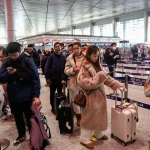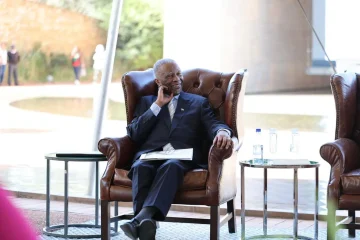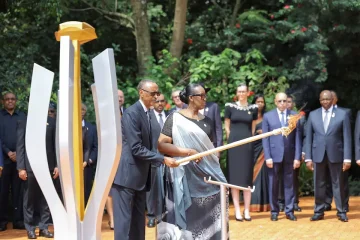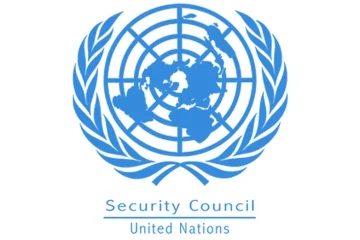METHINKS it is now time for South Africa to offer a new visa waiver policy for Chinese citizens, just like we did with Kenya and more recently, Ghana.
I raise the two African nation’s examples to illustrate that a visa waiver policy can be implemented without hindrance whenever the political will exists.
Bilateral relations between Pretoria and Beijing have developed exponentially since they were established 25 years ago by the Mandela administration following the dawn of democracy.
Diplomatic ties between China and SA have since achieved leapfrog development. For example, there is ample evidence of increased political mutual trust between Pretoria and Beijing, who are key BRICS members whose cooperation in international relations is on an upward trajectory.
South Africa has been China’s biggest trading partner for 13 years in a row, as well as one of the African countries with the largest stock of Chinese investment. SA’s wines, rooibos tea, and aloe vera gels are trending products in China.
Furthermore, by June this year over 200 Chinese-funded enterprises had created more than 400,000 jobs in SA alone. Additionally, automobiles and home appliances with Chinese brands made in SA are now owned by numerous Southern African households, according to the Chinese embassy in SA.
Charge d’Affaires of the Chinese Embassy in SA, Li Zhigang, recently described bilateral ties between SA and China as having entered “the golden era”.
During the August BRICS Heads of State Summit held in Sandton, Chinese President Xi Jinping notably used the occasion to include his official state visit to SA.
President Cyril Ramaphosa and President Xi also demonstrated their mutual trust during the challenging era of the COVID-19 global pandemic.
As a developing economy, SA can do with China’s massive human capital. The population of China is 1.4 billion.
Over 70 countries around the world have given Chinese nationals either visa waivers or visa-upon-arrival schemes. They include, among others, Morocco, Zambia, Tanzania, and the UAE. SA itself has issued visa waivers to more than 100 countries including BRICS member-states such as Brazil, Russia, Saudi Arabia, Argentina and UAE.
The great potential of China’s tourism market can therefore boost local job creation in the sector, bringing also a much-needed injection of direct foreign investment.
Visa waivers should of course be offered to tourists on a short stay only. The influx of Chinese tourists to SA amidst a torrid period of rising cost of living and unemployment will, in my opinion, alleviate some of the country’s socio-economic challenges.
SA should therefore have some kind of a visa facilitation programme as part of promoting tourism through people-to-people exchanges. Alternatively, when all else fails, SA should at the very least provide special dispensation based on visa-upon-arrival policy.
The spin-off from the people-to-people exchanges, and tourism cooperation that our Minister of Tourism Patricia De Lille has been working hard to achieve and enhance will stand SA in good stead.
According to the data of the Chinese Embassy in SA, our country attracts a significant number of tourists from all over China.
But due to the stringent visa requirements by the SA government, Chinese tourists have only been making less than an annual 100,000 visits for a very long time.
“That is only 0.06 percent of China’s total annual outbound visits, and this is not in line with China-SA comprehensive strategic partnership,” according to the Chinese Embassy in SA, before adding: “It is also not compatible with what is needed for the booming exchanges between the two close allies.”
I believe that a visa waiver policy will be good for the local tourism industry in attracting tens of thousands of Chinese nationals who are continually queueing for visas to travel to our country for leisure, potential business or to visit family and friends.
The “golden era” bilateral ties between SA and China should continue to be developed in many areas, particularly immigration. Pretoria and Beijing should therefore work a lot harder and come up with a mutually beneficial arrangement.













